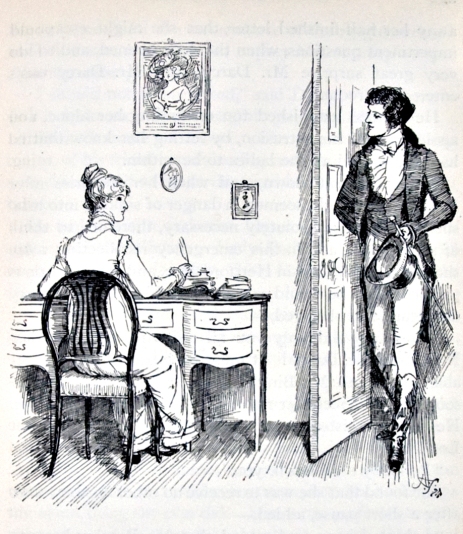Judgement is the ability to make considered decisions, or come to sensible conclusions. Prejudice is preconceived opinion that is not based on reason or actual experience. Being Judgemental is having or displaying an overly critical point of view.
– as defined by Oxford Dictionaries.
Other commonly used dictionaries are on similar tack.
Conceptually Simple. Culturally Complex.
Strictly defined, the distinction should be clear, and application unambiguous.
Being borne of deep consideration and sensibility, the process of rendering judgement should involve extensive review and weighing of evidence. In addition, both the likelihood of getting it right, as well as the possibility of getting it wrong should be acknowledged and processed. Hence, while judgement is a valued skill, it should be applied with a high degree of care and restraint, to improve, to protect, not to hurt.
On the other hand, Prejudice is neither based on reason or (extensive) experience, and being Judgemental is to focus on the minutiae and irrelevant to the point of error.
Culturally though, judgement is not always well understood, applied nor even be always considered desirable.
“Elizabeth and Darcy” An illustration by Hugh Thomson 1894
We all heard of Jane Austen’s timeless classic, “Pride and Prejudice” (see wiki-link). Many delight at the tale of Elizabeth Bennet and Fitzwilliam Darcy, how they overcame their pride and early rush to misjudgement (ie prejudice), as well as discovered the notion that “Nice” is not the same as “Good”. Memorable adventures, mistakes and redemption. We have likewise heard of the familiar mantra, “Judgement is bad. Do not Judge”.
Furthermore, judgement is too often conflated with prejudice and the inverse is also true. In a tribalistic environment, well considered, properly scienced statements may be branded as prejudicial or accorded dark motive by interested parties; unfounded opinions and even fabrications may be sold as insight. All to great detriment.
Harmfulness of Prejudice and Being Judgemental.
Apartheid, reduction of capacity and opportunity, are terrible manifestations of Prejudice. There is also no need to be judgemental e.g. to nitpick over harmless preferences and diversity of others, to over-measure in non relevant areas, to make others feel inadequate or to deprive others of fair opportunity.
Benefits of Good Judgement
There are important times when judgement or measurement is needed:
i) we assess people and situations to protect ourselves e.g. we won’t want to let a drunk person drive us home, and will probably dive for cover when a crazy looking guy whips out an automatic;
ii) we are wary of anyone who make us offers that are too good to be true, and do extra checks to ascertain background and validity;
iii) we recognize and differentiate a bully, a thief or a debtor who never repays debt from others, to prevent ourselves from being continually harmed. At the same time, we may recognize that people can change for the better, and so re-assess at an appropriate time and in safety;
iv) we know when we do not have enough evidence, and stop ourselves from being prejudiced.
etc.
“Lady Catherine and Elizabeth” Illustrated by C. E. Brock, 1895
The Far Reaching Consequences
By confusing “Judgement” with “Prejudice”, and declaring “Judgement” as evil, we lose the key tools to combat societal ills, ie our willingness to weigh in with reason, and give the fair and necessary critique. In the confusion of false Empathy and “Non Judgement/Non Assessment”, highly anti-social behaviour such as admitted extreme selfishness and other harmful activities becomes more tolerable, even acceptable, sometimes vindicated and flaunted culturally.
The confused even lose the ability to know and distance themselves from the recalcitrant, becoming repeated victims. Worse, destroying their own positive world views, and become more easily radicalized.
Hence, we need good judgement, to distinguish between perpetual blatant offenders and occasional mistakes, and act accordingly.
Conclusion
Let us improve our capacity for humility, apply good judgement where necessary to protect ourselves, but not to hurt, as well as reduce unfounded prejudice .
By examining information carefully for evidence and context, and using the correct lexicon, we can rehabilitate “Judgement”, and reduce the sway of blatant propaganda, flaunting and acceptance of extreme anti-social behaviour.
Thank you for reading and/or sharing!
PS: Updated for clarity. This post was also coincidentally made hours before the Paris terror attacks by ISIS/Daesh. Through careful and humble judgement, we are against the mindless violence on the innocent in Paris, and feel sad for Parisians. At the same time, we do not prejudice most Muslims, who are peaceful and who spoke out against Daesh terrorism.
For those who want to understand more about ISIS/Daesh, please refer to this Wikipedia link, detailing the ISIS crimes of ethnic cleansing, slavery etc. The question is not about reprisals for revenge, but more of how to exercise good judgement to solve the root of the Daesh crimes against humanity.
Image Credit: Davide Restivo




It’s not an easy task to discern when judgement is appropriate. But, as they say, nothing that is good comes easily
LikeLiked by 1 person
Agree very much, Nicolite! That’s why it is used sparingly, very much more for protection. It takes time to consider deeply, we do so in much humility aka it is not final (as in all science), and with great care and restraint.
Of course, the other time is in emergencies to protect ourselves (not to hurt others).
Nevertheless, good judgement is a necessary skill for all, to distinguish and deal with anti-social behaviour, and not let anti-social behaviour become rampant/prevail.
LikeLiked by 1 person